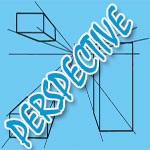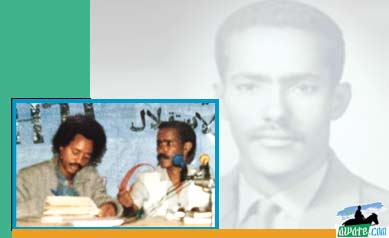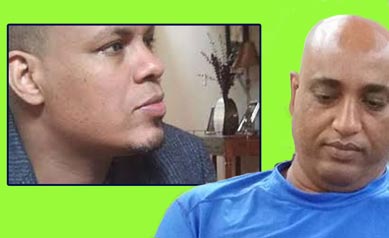Unity of Purpose

 Change always involves trade-offs; and one only hopes that short-term costs will be compensated by long-term benefits. A lot has been said about the National Conference for Democratic Change (NCDC), but I chose to remain silent, because, for the most part, I have nothing that adds value to the “discourse.” The truth is that I’m not a bit interested in fanning the partisan flames, and I don’t see any wisdom in taking sides. Suffice it to mention that whatever transpired has marginal importance to the people that matter the most.
Change always involves trade-offs; and one only hopes that short-term costs will be compensated by long-term benefits. A lot has been said about the National Conference for Democratic Change (NCDC), but I chose to remain silent, because, for the most part, I have nothing that adds value to the “discourse.” The truth is that I’m not a bit interested in fanning the partisan flames, and I don’t see any wisdom in taking sides. Suffice it to mention that whatever transpired has marginal importance to the people that matter the most.
I’m a firm believer that a crisis is a terrible thing to waste and relish finding the silver lining in any cloud. It is part of my policy to be part of the solution and not the problem. My silence was not an act of self-censorship; it was a purpose-driven stand, and purpose is what yields meaning to what we do.
Zban Gereb: kemzi aytgber:
I read a story by the prolific Tigrinya writer, the late memhr Asres Tesema. Asres tells the story of a village in Tigrai that had a difficult time in choosing its leader: a chieftain who also adjudicates disputes among the villagers. The residents could not agree on any of the nominees; for each one was bent on having his way. This went on for some time, and eventually they realized they could not afford the status quo. They needed an immediate solution to the gridlock and agreed to have the big tree, where they hold their meetings, to be the dagna chieftain till they find a suitable candidate they could all agree on, or, at least a majority of them. It was from this time that the villagers started to invoke the spirit of the law by saying: “zban gereb: kemzi aytgber” whenever they see someone trespassing or transgressing. (By the name of the tree, stop transgressing.)
It looks like we have forgotten everything we had learned in kindergarten. You remember those edifying stories and cautionary tales that sparked our imaginations and helped us learn right from wrong, good from evil and virtue from vice. We need to go back to the basics and reclaim those virtues we learned in kindergartens, dege-selams and Khelwas. We need a code of ethics: honor and integrity.
I remember a while back; I was reading a book by Peter Drucker, “Leadership and Integrity,” and my oldest son, Michael, who was about eight years old at the time, read the title and asked me what integrity was. Like a good father, I folded the book and was on the verge of giving him a lengthy lecture, but, by the look on his face, I could tell he regretted asking that question. It was his way of being a good son; and any self-respecting father knows that. It is parenting 101. (Mike, my firstborn is the pride and joy of my life.)Luckily he remembered that “integrity” was one of the six values they pledge to honor at school. Intrigued, I asked him what it meant. His response was music to my ears: “Dad that is when you do the right thing when nobody is watching.”
A new kind of unity:
By now, most people who closely follow the Eritrean opposition have come to the conclusion that some organizations can not work together. They have some irreconcilable differences that reflect their divergent ideologies, strategies, histories, attitudes and yes, personal grievances and biases. There is nothing wrong with that; this is the stuff of partisan politics and democracy. These differences have to be respected and honored. But they have to be presented and articulated in a clear, honest and transparent manner so people can have a choice to rally behind the cause they believe in and support the organization that will deliver results.
This is the new kind of unity: unity of purpose. The old notion of unity has proven to be as elusive as the desert mirage. The dream of all of us coming together under one roof like a family is still tempting, but unrealistic. It is a beautiful dream, but we can’t afford to be stuck in it. We need to move on. This would require some creativity on our part, but the idea itself has a long history. It is the idea beautifully articulated by no other than Jesus Christ, the messiah who was appropriately called “Teacher” by his disciples.
According to the Gospel of Mark:
“Teacher,” said John, “we saw a man driving out demons in your name and we told him to stop, because he was not one of us.”
“Do not stop him,” Jesus said. “No one who does a miracle in my name can in the next moment say anything bad about me, for whoever is not against us is for us. I tell you the truth; anyone who gives you a cup of water in my name because you belong to Christ will certainly not lose his reward.”
Whoever is struggling to bring change in Eritrea is not against us. Whoever is fighting for democracy, human rights, and justice is not against us. This is what binds all of us together: unity of purpose. And as long as the opposition is fighting in the name of the Eritrean people and for the issues and causes that matter to them, then, the people would welcome and support it, because they will certainly not lose their reward.
What next?
Our confidence in the future will primarily depend on how we reconcile our past. As long as there is injustice, there will always be group and individual grievances. Our focus should be on the former, injustice, but it is important that we acknowledge the latter, the victims. Liberty and equality can not be realized without fraternity, and it is only fraternal that we show we care. There is nothing inherently dangerous about minority ethnic movements because they are intra-state and geographically bounded and justice is what they seek. The raison d’être of their existence is injustice; you eliminate injustice you eliminate them.
The Eritrean Afars are demanding their rights as an Eritrean ethnic group and not as a transnational nationalist movement that seeks to create an Afar-land in the horn of Africa; thus reconfiguring Djibouti, Eritrea, Ethiopia and Somalia. The case of the Kunama is straight forward; it does not merit elaboration. We can easily address their concerns and integrate their issues into the mainstream. This is where leadership comes.
As far as the religiously political organizations, the message is simple: you’ve become a distraction and it’s time you stop; you’re not doing a service to anyone. Your impractical, unrealistic and insensitive approach is undermining the very cause we should all fight for. You’re making democracy look like a system where hatred, prejudice and divisiveness finds residence, and that is scaring people off. The separation of religion and state is not an ideological dogma, but a simple lesson of history. Secular Eritrea will not be anti-religion but a country where all sorts of believers would freely practice their faith without any fear from government intervention. The charge of “cultural imperialism” against Tigrinya speakers might actually have resonated with a lot of people if it was phrased in non-religious terms. No one wants their heritage to be washed away in a flood of cultural changes, and that includes Tigrinya speakers.
The secular and national organizations and parties must stop being taken hostage by peripheral issues. The groups with minority agenda have to appeal to you and not the other way round; you’re inherently inclusive and they are not. You should be in charge and lead the national agenda.
It is fine to have 2-3 markedly different parties/organizations. Being inclusive is not only measured by platform; head-count is an integral part of it. If your organization does not look like Eritrea, then, know that you’ve a problem and plenty of room for growth. Mahmud Sherifo’s minimum threshold of meeting the “Unity in diversity” doctrine requirements is a good way to go. I believe it was a 10% of each ethnic group.
Malcolm X and a Martin Luther King
We’ve come to the point where we might need to have a Malcolm X and a Martin Luther King in Eritrea. Without a Malcolm X, I don’t think MLK would have been as effective.
The EPDP advocates change through a non-violent and peaceful way. It must find a way to work with civic groups that share its values and principles and pump up the volume of de-legitimizing the regime. It must effectively use all media outlets to mobilize the masses to rise up against the regime and win over the army to rally for the implementation of the 1997 constitution.
If this is the strategy, then, it is very crucial that Mesfun Hagos, the former defense minister and a war hero take the driver’s seat. No one has more name recognition, legitimacy, and respect than Mesfun and it would be unwise not to capitalize on it. EPDP must realize, however, if it snoozes this time, it will lose. The Muslims say that whatever wealth God bestows on one, if one does not invest it wisely, it will be depleted through alms-giving. If EPDP does not capitalize on Mesfun’s name, his good name will suffer attrition, if it has not done so already.
The Salvation Front, ELF, Sagem, Federalists… and etc have all advocated change through all and any means necessary. They are willing to use violence and armed struggle against the regime. I’m not particularly fond of the method, but I don’t necessarily condemn it. I only wish that they do not target the EDF, Eritrean Defense Forces, or the Warsai-Yekealo. If they have to use violence, it should be targeted against those that are at the helms of power. Selective targeting and fomenting coup d’état seem to be the best choice for these groups.
We’re too small to be inundated with parties
For a small country like ours, it is not wise or useful to have more than 2-3 parties/organizations. It is irresponsible, immature and counter-productive. The time begs for a serious realignment on the basis of action-oriented and results-driven strategies, and platforms.
The EDA does not have to wait for the second round of NCDC. Sadly, EDA was never given a chance to be a power to be reckoned with. It is as good as dead and pretending otherwise is foolish. I would have applauded and respected the recently concluded NCDC had it shown the courage and wisdom to tackle EDA; either to do away with it or reform and restructure it.
A commission of 53 people, almost 20% of all the attendees, have been elected and entrusted to prepare a follow-up NCDC within a year. It is déjà vu all over again; “a meeting to have a meeting.” What a colossus waste of resources and of opportunities. Having multiple “national” conferences is a recipe for creating career and life-time activists who will fall into the trap of regarding the cause as a lifestyle. If the policy of holding a series of “national” conferences was good, Somalia would have been today the most reconciled, peaceful and prosperous nation in the Horn of Africa, if not the world.
If the past is an indication, the fact the NCDC had reserved a spot for EPDP is a bad omen. If EPDP did not find any wisdom in attending the first NCDC, I don’t see any reason why it should agree to attend the second one. I think that ship has already sailed. What this shows is the inexperience and naiveté of the attendees who seem not to know the nuances and intricate details of the workings of the opposition.
Whether one condones or condemns their decision, EPDP has taken a bold and risky action, and like all bold and risky actions, it would either reap tremendous benefits or suffer proportionately. Time will tell.
A rare opportunity presents us for a real realignment, where we will have some clear and stark choices. This will make us honest; give us clarity in our vision and assertiveness in our stand, and the only casualty of this will be hypocrisy. It’s quite a bargain.
Happy bhti meskerem:
The objective of our struggle was twofold: First, independence from a foreign domination; the right of a group to rule itself. It is the right of self-determination. Eritrea is no more a European colony or a young bride kidnapped to be married to an old and ailing feudal lord, or an appendage to a defunct and expansionist empire. Eritrea is no more the 14th province of a morbidly backward empire where the sun never rises.
Mission accomplished.
We paid a huge price, but in a quintessentially Eritrean way, we prevailed against all odds. The sacrifices, the martyrdom are neither the cradle of our national identity nor the source of our misery, but a tribute to our love and commitment to the ideas of independence and self-rule. The struggle’s saga of heroism is a soul-stirring hymn that adorns the Eritrean character that never kneels down. This is an Eritrean odyssey that features a humble, but a noble man in the name of Awate who had the audacity to dream big. The spark at Mount Adal has engulfed the whole nation, and, today, we have a country we call our own. In the words of Sir Walter Scott:
Breathes there a man with soul so dead
Who never to himself has said,
That is my own, my native land!
Thanks to Awate and the many heroes that followed him, we are finally able to say, “That is my own, my native land!” and our soul is so alive; we are here to honor all of them. Not surprisingly, any revolution covers a multitude of sins and digressions and ours is not different, but those wrong detours we occasionally took should not make us dishonor our proud and cherished legacy. That would be utterly foolish, and it is even more foolish when it is confused with creative and independent thinking.
The second goal of our struggle was to promote, defend and cherish freedom: personal freedom in an independent nation. With the drafting of the constitution, we were on the right track but with the refusal of Isaias to sign the ratified constitution in 1997, everything went sour.
I’m well aware that we cannot ask more from our veteran fighters, the yekalos who are now in their sunset years; they have given us everything they got. I want to remind them, however, that they have come so near and yet so far in bequeathing us a nation that does justice to their sacrifices. In a final call for duty, I want to implore them to please help us implement the ratified constitution; it belongs to the people.
We do not call our veterans yekalos for nothing; they can bring change, and it is not too late. Their legacy would be enshrined in our hearts and posterity would immortalize their heroic deeds. They have sacrificed everything and all they got is their proud legacy; it is important to protect it and it is even more important to appreciate and cherish it.
I’m puzzled and can’t understand why anyone who advocates non-violent regime change would not champion the implementation of the 1997 constitution. Constitution-making is inherently a political process, and I admit there were groups who were excluded; but wisdom dictates that we should not allow the perfect to be the enemy of the good.
The ratified 97 constitution must be the bedrock and the launching pad of our democratic struggle.
We’ve unfinished business; mission not yet accomplished. Freedom must prevail, and if we care about freedom, we must care about democracy. The best way to institutionalize freedom is through democracy.
To Freedom!!
To contact Semere: weriz@yahoo.com, http://www.facebook.com/semere.habtemariam



Awate Forum